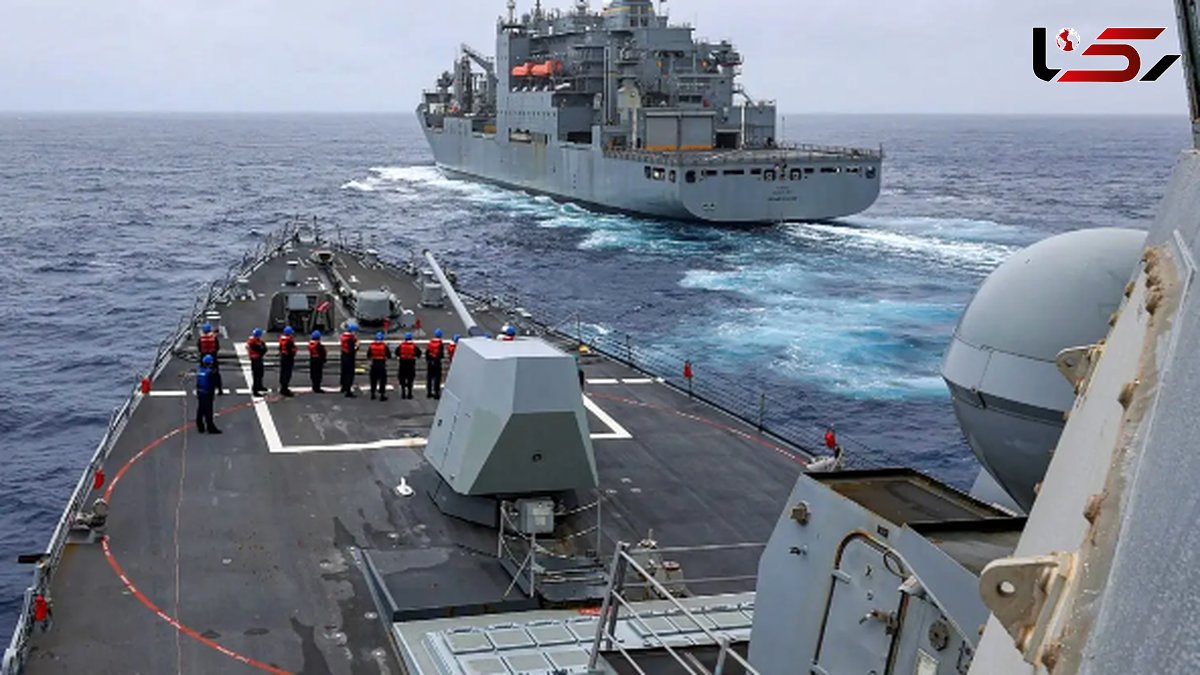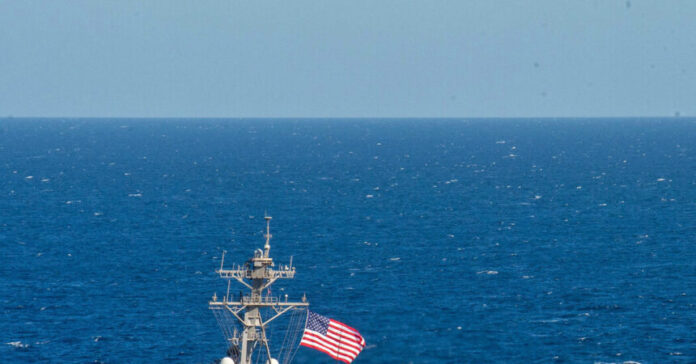A Provocative Encounter at Sea
Tensions between Washington and Caracas escalated this week after two Venezuelan F-16 fighter jets conducted a low-altitude flyover of the USS Jason Dunham, a U.S. Navy destroyer operating in international waters. The Pentagon described the maneuver, which occurred Thursday, as a “highly provocative move” intended to disrupt ongoing American counter-narcotics operations in the Caribbean.
The incident unfolded just 48 hours after U.S. forces carried out a lethal strike against a suspected Venezuelan drug-trafficking vessel, killing 11 individuals allegedly tied to the violent Tren de Aragua gang.
Pentagon Confirms Flyover

According to CBS News, which first reported the encounter, Defense Department officials characterized the action as a deliberate “show of force” by the Maduro government. A Pentagon spokesperson confirmed that “two Maduro regime military aircraft flew near a U.S. Navy vessel in international waters,” adding that such tactics pose risks of escalation in an already volatile region.
The USS Jason Dunham, an Arleigh Burke-class guided-missile destroyer, is among at least eight American warships currently deployed in the Caribbean as part of enhanced maritime security missions. Although the Venezuelan aircraft approached at close range, the U.S. vessel did not respond with defensive fire.
Venezuela’s F-16 fleet, originally purchased from the United States in the 1980s, has been largely grounded in recent years due to maintenance and parts shortages. Despite their aging status, Thursday’s flyover demonstrated Caracas’ willingness to confront U.S. military assets directly.
Aftermath of Deadly U.S. Strike
The flyover followed an unprecedented military operation earlier in the week. On Tuesday, U.S. forces launched a strike against a vessel in the Caribbean that officials said was carrying armed members of Tren de Aragua, a Venezuelan gang designated as a foreign terrorist organization. President Donald Trump hailed the action, claiming 11 “narcoterrorists” were eliminated.
Footage released by U.S. authorities showed a speedboat engulfed in flames after being targeted by American firepower. Venezuelan officials have disputed the authenticity of the video, suggesting it may have been manipulated. However, independent analysis by Reuters found no evidence of digital alteration.
Regional Military Build-Up
The confrontation underscores a broader U.S. military buildup in the region. Over the past several weeks, the Trump administration has reinforced naval patrols, deployed F-35 stealth fighters to Puerto Rico, and positioned thousands of Marines and sailors across the Caribbean.
Secretary of State Marco Rubio, speaking during a visit to Ecuador, defended the administration’s hardline approach. “If you’re on a boat full of cocaine or fentanyl headed to the United States, you are an immediate threat,” Rubio said. He emphasized that Washington is shifting from traditional interdiction to more aggressive tactics, including the use of lethal force against suspected traffickers.
“The United States will wage war on narco-terrorist organizations,” Rubio added, warning that additional strikes should be expected.
Venezuela’s Response
In Caracas, President Nicolás Maduro condemned the U.S. actions as acts of aggression and vowed to mobilize both military and civilian forces in defense of national sovereignty. Maduro has called for more than 8 million citizens to enlist in militias, warning that Latin America faces “the greatest threat in a century” from U.S. intervention.
“If Venezuela is attacked, we will become a republic in arms,” Maduro declared during a televised address. He accused Washington of pursuing regime change through intimidation and warned that any incursion would trigger a regional conflict.
Legal and Diplomatic Questions
The United States’ expanded military role in drug interdiction has sparked debate among legal experts and international observers. Traditionally, such missions have been led by the U.S. Coast Guard, operating under law enforcement authority rather than combat rules of engagement.
Critics argue that employing destroyers and stealth fighters to target suspected traffickers risks blurring the line between policing and warfare. Allies in the region have expressed unease, though some governments—particularly Ecuador and Colombia—have voiced support for Washington’s stance.
Meanwhile, the U.S. has doubled its reward for Maduro’s capture to $50 million and imposed fresh sanctions on Venezuelan-linked criminal networks. The American naval flotilla in the Caribbean, equipped with Tomahawk cruise missiles and advanced surveillance systems, represents one of the most significant U.S. deployments to the region in decades.
International Repercussions
The incident comes amid growing international concern about instability in Latin America. Venezuela, already grappling with economic collapse and mass migration, now faces the prospect of military confrontation with the United States.
While the Pentagon insists that its operations are narrowly focused on disrupting drug trafficking, Maduro has framed them as part of a broader strategy to topple his government. The situation has heightened fears of miscalculation, with analysts warning that even a minor clash could ignite a wider conflict.
As both nations trade accusations and display military might, the Caribbean has once again become a flashpoint in U.S.-Venezuelan relations—raising questions about the future trajectory of Washington’s anti-narcotics campaign and the stability of the region at large.
Sources: Reuters

